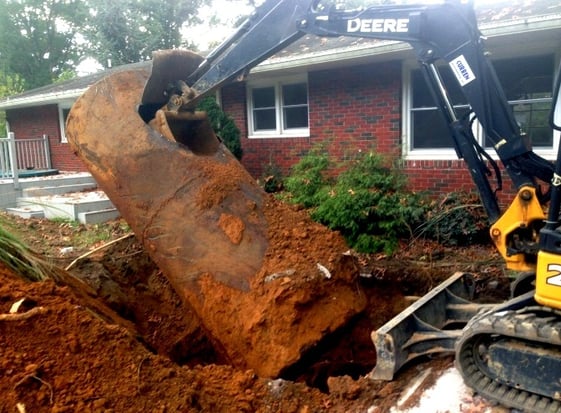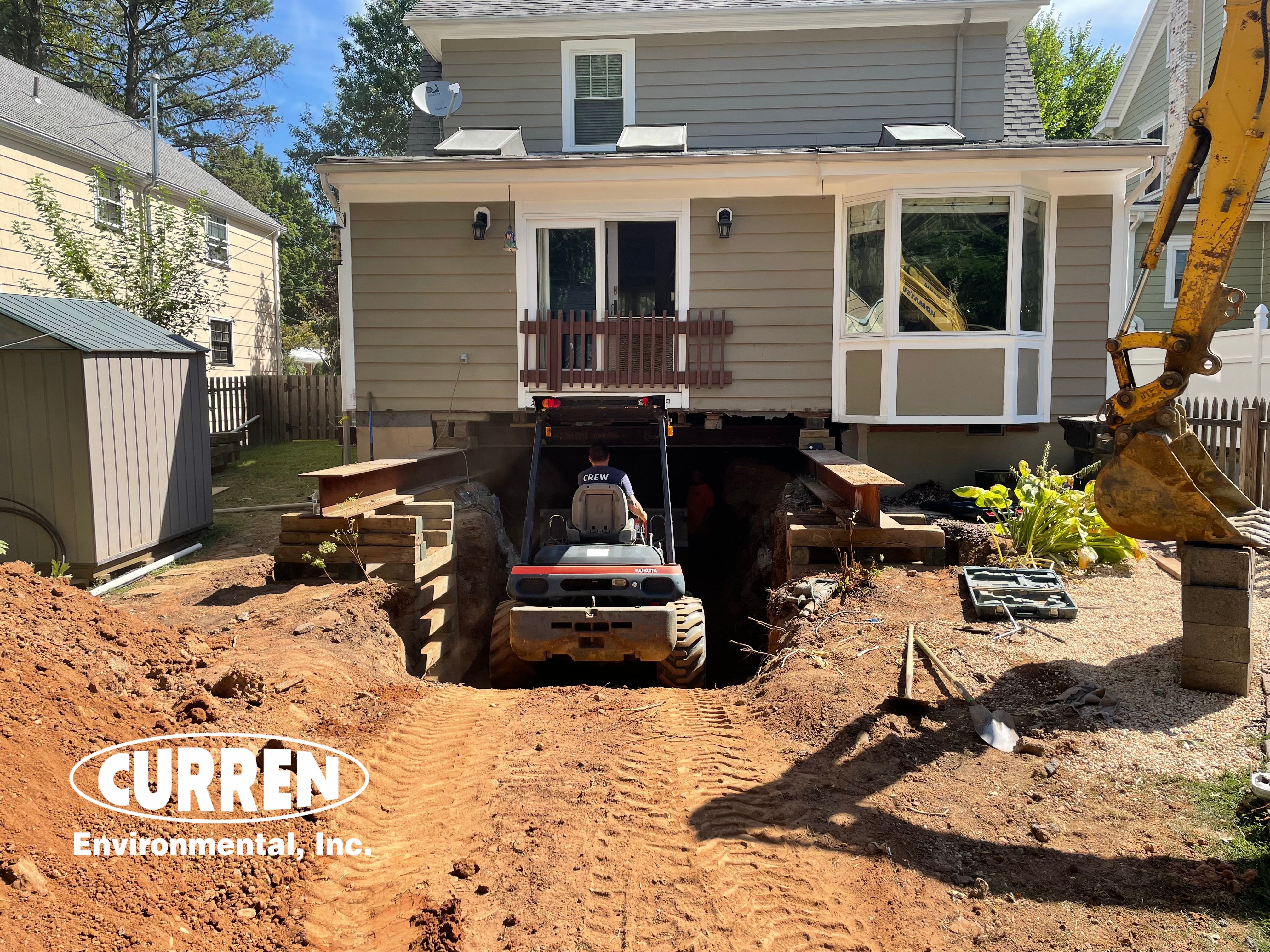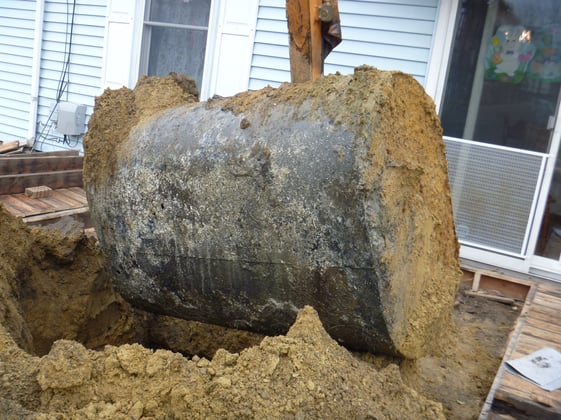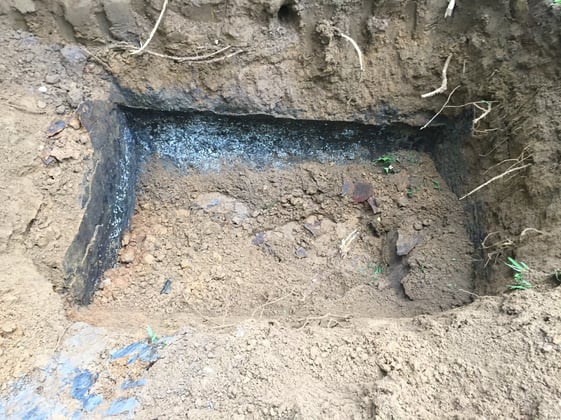NJDEP Oil Tank Grant Frequently Asked Questions
New Jersey has a grant program that allows residents of New Jersey that have leaking oil tanks to obtain money to address the tank lea, aka money for remediation or cleanup of leaking oil tanks. Below we have summarized the most frequently asked questions regarding oil tank grants.
Q. What type of oil tank grants are available?
The oil tank grant as it is commonly called is for leaking residential heating oil USTs ( Underground Storage Tanks). So only USTs, Not ASTs. And no they do not pay you to remove your oil tank, that is on the tank. You can get reimbursed for reasonable cost of tank removal if it leaks, but these monies come after removal not before.
Q: Can I still submit an application to the UST Fund, I heard the New Jersey tank grant program is no longer accepting applications?
A: Yes, the UST Fund is still accepting new applications for unregulated petroleum underground storage tanks, which includes home heating oil tanks; however, these applications will not be reviewed or processed at this time due to insufficient funds. They will be date stamped and held and reviewed in order of receipt. In the future if and when sufficient funds become available, these applications will be reviewed and processed. The NJDEP has provided a date of review sometime after July 2014 for new applications received after May 2, 2011.
For the record the tank fund has a budget or allotment of monies, like a paycheck, but they only get paid once a year. Once the monies are spent they have to wait for the next payday. So although the monies may not be available immediately and quite frankly funding is running about 3 to 4 years, the money will eventually come.

Q: I removed my oil tank and it did not leak. Can I still submit a non leaking tank removal grant?
A: Short answer is no. New Jersey used to allow grants for non-leaking tanks, that changed. New Jersey views removing a non-leaking tank as a typical homeowner expense like replacing a refrigerator or washer and dryer, hence monies are not needed from the State.
Expert Advice
Monday to Friday 888-301-1050
Q: I submitted my application for the oil tank grant and received a letter that monies are not available and I have to wait. Why submit for a grant if I can't get a grant?
A: UST Fund applications are reviewed as monies are available. Yes the fund gets many applications and yes the fund spends its budget every year, but more money is added every year (July).
If you received a letter from NJDEP, it is only telling you that your application has been received and you will be contacted when your number comes up so to speak. It maybe a few years before you are contacted, but you will be contacted.
The oil tank grant is free money for hardship cases where an oil tank is found to be leaking. If you meet the criteria for being eligible for the grant, it makes no sense to not apply.
Q. OK, I received a letter about my grant application that my grant application has been forwarded to the NJEDA, but I have not heard anything?
A:OK, so your grant has been moved to the front of the line (probable took a few years) and it has been submitted to the EDA for funding. What this means is first that the NJDEP has reviewed and approved your funding request, meaning the monies you asked for fit the grant guidelines and your proposed scope of work to address the contamination is feasible and reasonable. Now the EDA has to review your application for financial eligibility, meaning do you fit the financial need. Sometimes applications will go to the EDA and they cannot process them as the monies may have just dried up. Hang tight, when monies are available, your application will be reviewed.
Q. The EDA has sent me paperwork asking for financial information and a $250.00 check, what is that about?
A. The EDA must review your financials to ensure you are financially eligible. They will ask for two years of your most recent tax returns, for you to fill out a financial disclosure statement and for you to provide the application review fee of $250.00. The tank returns are from the year the tank was removed and then your most current taxreturn.
Q. My tank grant was submitted to the NJDEP and I have not heard anything for over a year.
A. If your application has not yet been forwarded to NJEDA (you would have gotten a letter), then it is still with NJDEP. If you are in this category, your application will not be processed to NJEDA at this time due to insufficient funds or simple because there are applications in front of you.. NJDEP’s projects that from your date of application the wait will be several years, maybe 2 years, maybe 3, maybe 4.
Q. Where does the oil tank grant come from?
A:Monies come from a very small percentage of New Jersey’s corporate business tax.
Q: What if my UST Fund application has already been approved?
A: If your UST Fund application has received full approval through both NJDEP and NJEDA, meaning that you have signed the Financial Assistance Agreement and closed on your grant or loan with NJEDA, then funds are reserved for your project and will be available to pay for costs incurred, as specified in your approval. Therefore, funds will be available to pay contractor invoices as the work is performed, with the understanding that such invoices still have to go through the normal review process to ensure that they represent work that was part of your original approval.
If you submitted a paid tank removal invoice you should receive a check from the EDA reimbursing you for the tank removal cost.
Q. My remediation is complicated and extends beneath our house, how can you remediate that?
There are various approaches you can apply to extract contamination from below a structure. The photo below is one such example. Curren Environmental has been around since the1990's and we have completed thousands of remediation project, many with the grant program.

Q: My tank remediation cost more than we thought and I have to apply for more money. What happens now that supplemental (additional) funding above the originally approved amount is needed?
A: Whenever an applicant requires additional funding to complete their UST project, the applicant must submit what is referred to as a “Supplemental Funding Request”. These Supplemental Funding Requests will be prioritized so that projects already started can proceed through completion. Therefore, Supplemental Funding Requests will continue to be accepted, reviewed and processed provided sufficient funding is available.
Q: What is the future outlook for the UST Fund?
A: Currently, as per the State Constitution, the UST Fund is allotted a certain amount of funding each fiscal year (July of each year). These amounts fluctuate with certain tax revenues collected by the state. NJDEP and NJEDA are currently working on legislative initiatives to help more efficiently utilize the limited funds anticipated in the future, however, there is no guarantee that any such initiatives will allow applications to be funded any earlier than detailed above.

Q: I am selling my home, what if I remove my oil tank now, find out that it is leaking and do not want to wait for funding approval? I have a relative who will help me pay for the remediation, can I still apply to the grant if I pay for the oil tank remediation first?
A. So you can't wait a few years to get the grant approved but you can scrape money together to pay for the oil tank remediation? You are free to proceed with the remediation, but save your receipts, invoices and canceled checks. This can be submitted to the grant program post remediation and you can get reimbursed. Even if you move out of the State of New Jersey, you can receive monies from the grant. Remember the grant is meant to help New Jersey owners of leaking oil tanks. There is no caveat that you have to wait for funding to remediate.
Q. I dont have money to remediate a tank leak, but I can pay for the removal of the oil tank. Should I remove the oil tank and potentially open a can of worms?
A: Oil tanks are an expendable item, much like a roof, and require replacement. As the saying goes, “rust never sleeps”. It’s always a good idea to remove or replace an oil tank if it is older than 20 years. Please be aware that the majority of tanks do not leak, but any bare metal tank buried in the ground will eventually leak (maybe tomorrow, maybe in 50 years). So the basic idea behind removing an oil tank is a sound one regardless of the grant funding program. You should still remove the tank (i.e., hire an NJDEP certified company) and if the tank leaks, you can apply at that time.
What people do not realize is that the grant program was originally meant to encourage tank owners to remove their tanks before problems happen since a leaking tank is significantly more expensive to address than a non leaking tank.

Q: What if I need to remediate a tank that leaked?
A: If your oil tank leaked, you must first determine to what extent (diagnosis) by doing soil borings in and around where the tank was located so that the area (horizontal and vertical extent) of oil contaminated soil can be determined. Once you know how large or small of an area, then an accurate scope of work and costs can be developed to remediate the leak. These costs can then be prepared for grant funding submission. You can't just ask for monies to remediate a tank leak if you have not gotten a handle as to the extent. In situations like this you may apply for a small grant to diagnosis the problem, then once that is determined submit supplemental funding for remediation.
Q: What if I can’t wait for funding to remediate my oil tank leak? i.e., I am selling my home with an oil tank leak?
A: We know that oil tank remediation is an unexpected and costly expense for homeowners. Since each situation is unique, Curren Environmental will sit down with you and review all options to address your tank cleanup project. We offer discounted and flexible options to address your situation. Curren has more than 25 years experience in tank removals and cleaning, soil and ground water testing and remediation activities.
If you have any additional specific questions regarding the UST Fund or oil tank remediation, please call Monday to Friday between 8:00 am and 5:00 pm EST.



